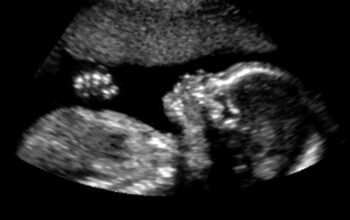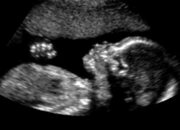Germany has established itself as a formidable hub for scientific research and education, particularly in the realm of physics. With a plethora of institutions offering rigorous PhD programs, aspiring physicists have the opportunity to delve deeply into various realms of theoretical and experimental physics. The following discourse elucidates the paramount universities across Germany that distinguish themselves with their innovative research, esteemed faculty, and state-of-the-art facilities.
1. Ludwig Maximilian University of Munich (LMU)
LMU Munich is internationally renowned for its commitment to excellence in research and education, ranking consistently among the top universities in Europe. The university offers a PhD program in physics that encompasses a spectrum of disciplines, including astrophysics, condensed matter physics, and biophysics. One of the distinguishing features of LMU is its integration with the Max Planck Institute for Physics, which enhances research opportunities and provides access to cutting-edge technology. PhD candidates benefit from a collaborative atmosphere that promotes interdisciplinary approaches, fostering innovation at the intersection of physics and technology.
2. Technical University of Munich (TUM)
TUM is celebrated for its strong emphasis on applied sciences and engineering. The physics department at TUM is characterized by its diverse research groups focusing on experimental and theoretical physics. PhD students at TUM engage in groundbreaking research that often intersects with areas such as material science and photonics. The university’s proximity to numerous high-tech industries in the Munich region fosters invaluable partnerships, allowing students to translate theoretical concepts into practical applications. The unique blend of theoretical knowledge and technological application positions TUM as an ideal choice for prospective PhD candidates.
3. Heidelberg University
Heidelberg University boasts a longstanding tradition in scientific inquiry, particularly in the natural sciences. The physics department offers a PhD program that emphasizes both fundamental and applied research. The institution’s affiliation with various research centers, such as the Kirchhoff Institute for Physics, provides PhD candidates with access to exceptional resources and collaborative projects in areas like quantum mechanics and nanotechnology. The university’s scenic location and vibrant academic community further enhance the educational experience, attracting scholars from around the globe.
4. University of California – Heidelberg Graduate School
This unique program offers a joint PhD experience between Heidelberg University and leading American institutions, fostering an enriching academic dialogue between different educational cultures. The curriculum facilitates transdisciplinary research, enabling students to engage with diverse methodologies and theoretical frameworks. The collaborative environment prepares candidates for global challenges in physics and technology, ultimately enhancing their academic portfolios. This innovative approach underscores Heidelberg’s commitment to international collaboration in the field of physics.
5. University of Göttingen
The University of Göttingen is distinguished by its historical contributions to the field of physics, evidenced by its association with eminent physicists such as Max Born and Robert Hooke. The university provides a dynamic PhD program that encourages exploration in both theoretical and experimental physics. With an emphasis on fundamental research and its implications in advanced technology, Göttingen stands out for its research groups focused on string theory, statistical mechanics, and quantum optics. The incorporation of advanced computational techniques complements the traditional experimental approaches, ensuring that PhD candidates are well-rounded in their expertise.
6. RWTH Aachen University
Known for its engineering prowess, RWTH Aachen University offers a robust physics program with a clear lens on technological innovation. The university provides PhD candidates with opportunities to engage in applied research that directly intersects with industries such as semiconductor technology and renewable energy. Its affiliations with numerous research institutes create a synergistic environment conducive to groundbreaking discoveries. The emphasis on practical application ensures that PhD graduates are not only adept in theoretical constructs but are also equipped to address real-world challenges through technological advances.
7. University of Stuttgart
The University of Stuttgart’s physics department is recognized for its cutting-edge research in fields such as quantum science and materials physics. The interdisciplinary nature of the PhD program encourages collaboration with other disciplines such as engineering and computer science, mirroring the complex nature of modern scientific inquiries. The university’s access to advanced facilities, such as the Stuttgart Center for Simulation Science, enables students to employ sophisticated modeling techniques in their research. This integration of theory with technological application prepares candidates to make significant contributions to the scientific community.
Conclusion
The array of distinguished universities in Germany cultivates an environment ripe for scholarly endeavor, particularly for those pursuing a PhD in physics. The unique combination of theoretical inquiry and practical application found in these institutions empowers students to contribute meaningfully to the ever-evolving landscape of physics and technology. Each university offers a distinctive array of opportunities, supporting the myriad interests of aspiring physicists. As candidates engage with diverse research topics and collaborate across disciplines, they robustly prepare to meet the challenges and opportunities characteristic of the modern scientific milieu.











